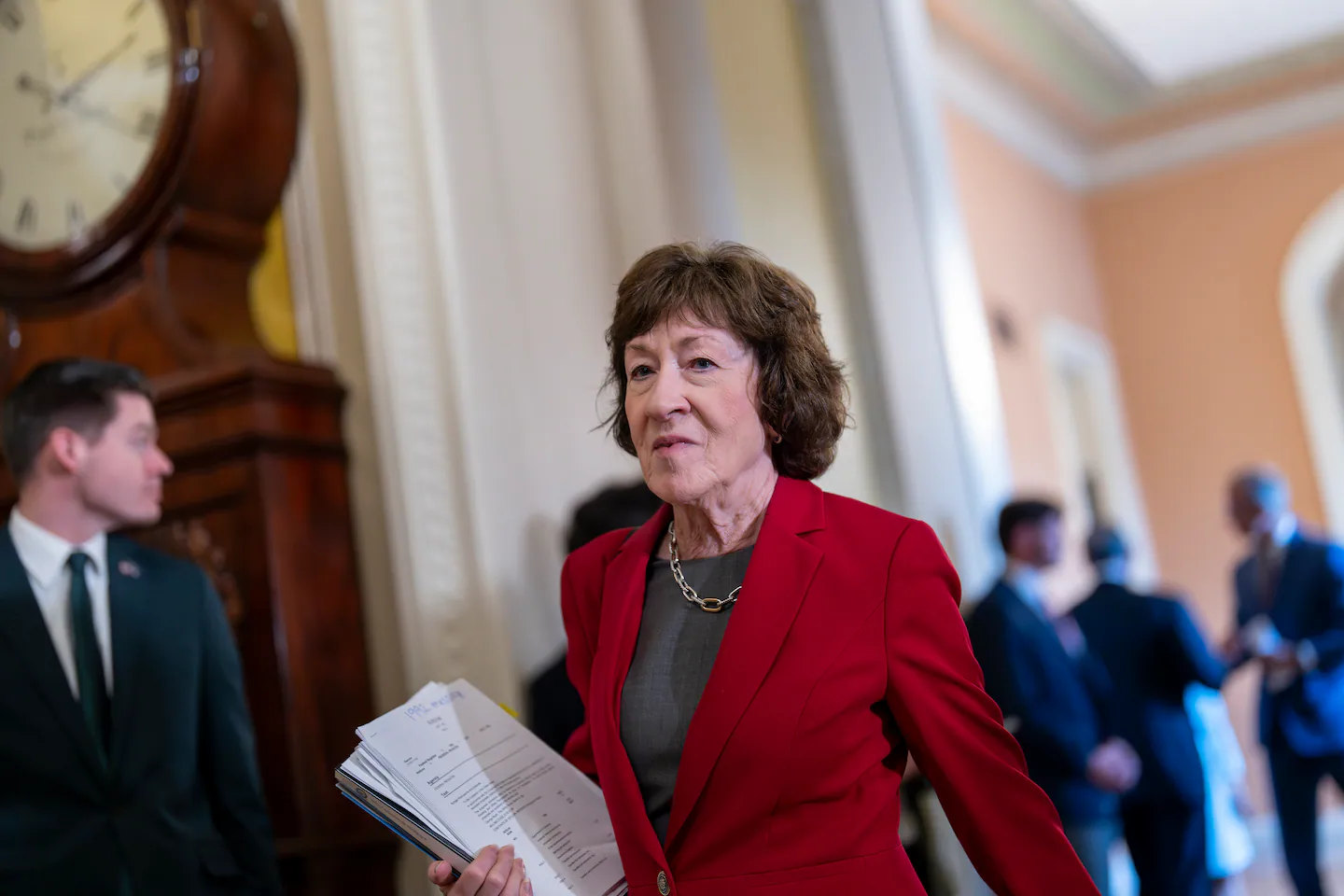Copyright The Boston Globe

But Collins has faced an administration hell-bent on wresting more control from Congress, including by intentionally testing the boundaries of executive authority by choosing not to spend or cancel appropriated funds and programs. Rather than having her state and top policy priorities respected as traditional for the chair of the committee, the administration has targeted both in its budgetary moves. Aggressive tactics, under the leadership of budget director Russ Vought, have contributed to a sharply partisan government shutdown that is already set to be one of the longest in history. And she’s entering what’s expected to be a tough reelection campaign as Democrats will again spend huge amounts of money trying to flip her seat. Both Republican and Democratic senators said they respect Collins and that she has been working hard to try to at least pass bipartisan funding bills through her committee. Many Republicans, in particular, praised her and denied there was any personal affront from the administration to her or her power. But they acknowledged she was navigating choppy waters. “I don’t think Senator Collins has been undermined because she’s such a tenacious chair, such a tenacious person,” said Kansas Senator Jerry Moran, a Republican on the Appropriations Committee. “It’s more work, maybe, than it’s ever been.” One of the first flashpoints emerged barely a month into Collins’ tenure. A day after Vought’s confirmation, the National Institutes of Health imposed a new cap on indirect costs in scientific funding, which imperiled billions of dollars in grant funding. The 15 percent cap was prohibited in the previous year’s funding bill that Collins had a hand in writing, and a blow to biomedical research, one of her top budget priorities. She opposed the policy, and it was quickly blocked in court. It was far from the only time she has pushed back against the White House. She criticized and voted against a package of spending rollbacks sought by the administration, which her Republican colleagues passed anyway, as well as another package of cuts to already funded programs intentionally delivered to Congress at the end of the fiscal year so that lawmakers could not overrule them, a tactic called “pocket rescissions.” Her office pointed out that in the first package, she did prevail in getting the White House to spare a global AIDS prevention program, though it wasn’t enough to win her support. The administration has also laid off staff and proposed to dramatically cut programs that are important to Collins, including science funding and the Low-Income Home Energy Assistance Program (LIHEAP), though, as the author of funding bills, Collins has overruled the budgetary requests. She’s asked for grants and programs to be restored. Sometimes, as in the case of Maine Sea Grant funding, she’s been successful. Amid the shutdown, she said she “strongly oppose[d]” the attempt to permanently lay off federal workers. After Maine’s Democratic governor, Janet Mills, challenged Trump over a Maine anti-discrimination law that allows trans athletes to play in girls’ and women’s sports, the administration canceled contracts that allowed Maine parents to register their children for Social Security numbers at the hospital. (Mills is now challenging Collins for her seat.) The contract was quickly reinstated, and Collins joined Maine independent Senator Angus King in asking for an explanation. Historically, the chair is one of the most powerful positions in Washington, especially for their home state. Legendary chairs include the late West Virginia Senator Robert C. Byrd, who went on to become the Democratic party leader and steered billions in federal money to his state. Michael Thorning, a former Senate staffer who works on democracy and governance at Bipartisan Policy Project, said everyone involved in funding talks is usually mindful of the Appropriations chair’s state and priorities. But with increased control over negotiations by party leadership, a breakdown of bipartisanship in Washington, and now the Trump administration’s tactics, the position’s power is eroding, Thorning said. “The White House is quite explicit about this,” Thorning said. “A lot of the strategies they are taking are explicitly meant to circumvent the appropriations process, or at least exercise presidential authority that they believe supersedes the appropriations process.” Collins herself has said she has no regrets for voting to confirm Vought, though she told reporters, “that doesn’t mean we agree on much of anything.” Her office emphasized that the appropriations bills for next year that the committee has been advancing are being written in strategic ways to make the specifics harder for the administration to circumvent. In July, Collins reportedly pushed back against a colleague in a closed-door lunch when he assailed the spending levels she set with her Democratic counterpart as too high. Collins told that colleague, Wisconsin Senator Ron Johnson, that her male predecessors didn’t receive the same “disrespect,” according to Punchbowl news. Her office declined to comment on what was said. One former longtime colleague, Democrat Jon Tester of Montana, said Collins should be — and probably is — incredibly frustrated about the administration’s tactics undermining the appropriations process. He said she wasn’t getting enough support from her Republican colleagues. “If Robert C. Byrd was alive, he’d be going crazy about this, whether it was a Democrat or Republican in the White House,” said Tester, now the host of a podcast called “Grounded.” “I do not blame Susan Collins. I think Susan is doing what she can do, but she’s a lone voice in a wilderness of people who have bought into this ‘Trump can do no wrong’ stuff.” Many of her Democratic colleagues on the Appropriations Committee expressed respect for her, blaming the administration. “She’s trying very diligently to maintain the appropriations process, but you have a White House that does not want to see Congress have any real power,” said Rhode Island Senator Jack Reed. “This administration has been deliberately trying to remove from the Congress the congressional control of the purse.” Added Michigan Senator Gary Peters: “Obviously she’s worked her whole career to be chair of Appropriations, and I think it’s turned out not to be what that position used to be.” Some Republicans on the committee said the administration has been aggressive to accomplish its goal of cutting the budget. They also criticized Democrats for continuing to block funding during the shutdown, saying the shutdown is standing in the way of funding bills that would resolve some of the issues with the administration. (Democrats argue the impasse is necessary to fight for health care subsidies.) “She’s navigating everything tremendously,” said West Virginia Senator Shelley Moore Capito, a Republican. “I think the White House respects Susan Collins and her years of service on Appropriations. What I think the administration has done, and told the American people when President Trump ran, ‘The government’s bloated and we’re going to come in and make adjustments.’” But, Capito acceded, “It’s totally made her life more difficult. But she’s a fighter, I think she’s proven that.”



